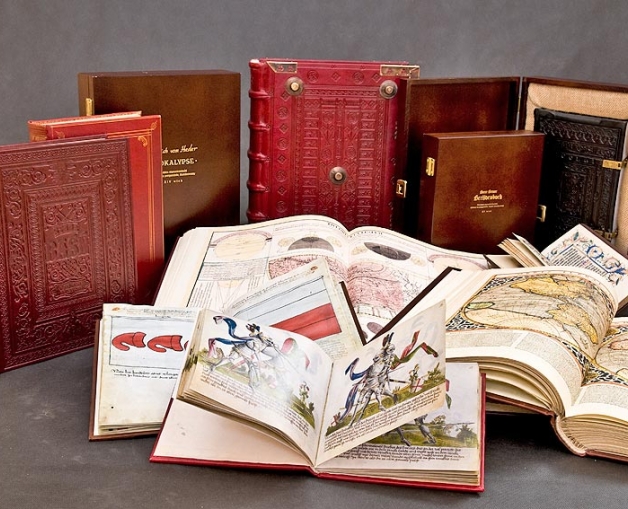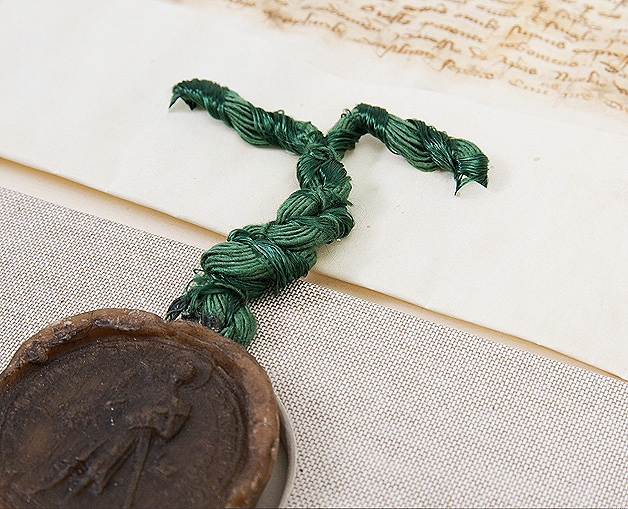What is a Facsimile?
"A facsimile is a representation of a certain mystery that gifts a new life to an old book or text. (...) At the same time it is a work where everything is reproduced – the print itself, initials, stains or accidents that somewhat become the heroes of the given book."
Jan Bernard Szalaga (2004).Foreword. [In:] Gutenberg Bible and its Polish Facsimile.Pelplin, Wydawnictwo Diecezji Pelplińskiej Bernardinum
What is a Facsimile?
A Facsimile is a Faithful Reproduction of the Original Work. All bookbinding details are of particular importance. Reproducing of nearly the original binding, selection of leather and dye, manner of gluing or sewing, the spine, headband, ferrule and ornaments requires a robust crafting expertise. Hand-painted initials, illustrations (called illuminations), all the little intricacies, one of a kind elements that are reproduced in the copied work. Preparing the original copy for printing, then crafting the leaves of a facsimile is an extremely complicated process that requires the combination of the latest technologies with the skills and mastery of artisans. The final outcome is achieved by special equipment used to properly expose the reproduced books, unique software and, above all, outstanding experts – scientists, photographers, archivists.
Facsimiles - a Heritage and a Passion...
Today the most valuable cimelia are enjoying increased protection, among others, on account of a considerable restriction of access to the original and often priceless copies. Often these are works that changed the course of history or popularized knowledge that had a profound impact on overall intellectual and spiritual development. To protect the centuries-old unique rara avis from oblivion, Orbis Pictus Publishing House presents the most important books of the ages, delivering to your homes unique facsimile editions.
What contributes to the process of creating Pelplin Books is knowledge and experience which constitute our greatest secret and value. This is why Orbis Pictus can boast the best crafted Facisimile Books in the world.






